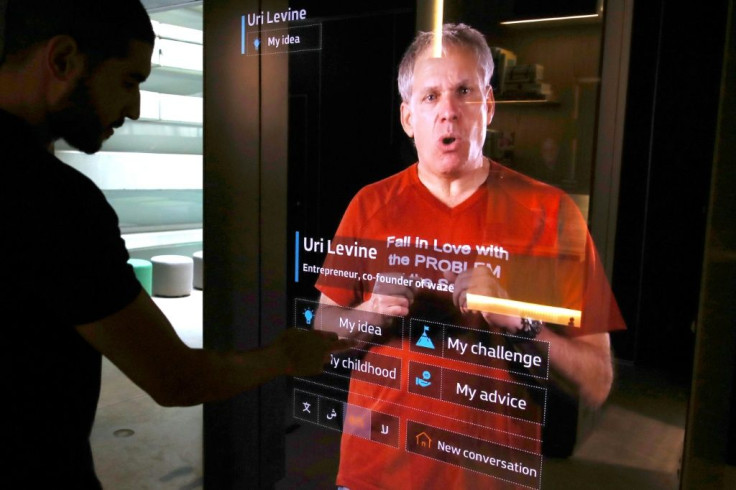Israeli high-tech looks to future -- whoever wins vote

Inside a sleek, gleaming building with views over the Mediterranean, the co-founder of the navigation app Waze appears on a life-sized screen with words of advice on his red T-shirt.
"Fall in love with the problem not the solution," Uri Levine's shirt says in the exhibit at Tel Aviv's Peres Center for Peace and Innovation, which serves in part as a shrine to Israel's long list of technological accomplishments.
With all due respect to Levine, his native Israel has done both when it comes to high-tech.
The success of Israel's high-tech industry is one of the few subjects not up for debate ahead of September 17 elections, and those involved are looking at ways to build on the achievements of the "start-up nation" no matter who wins.
With the world's most start-ups per capita, Israel has carved a niche.
It has served as an incubator for brands like Waze -- now owned by Google -- web-publishing firm Wix and Mobileye, an autonomous driving company bought by Intel in 2017.
Giants such as Intel, Facebook and Google also have operations in the country, helping form its "Silicon Wadi", or valley.
But with those feats behind it, the industry is looking towards new challenges: increasing employment in the sector, having more firms grow in Israel rather than being acquired abroad, and maintaining an edge as competition increases.
"As a small country, you have to work extra hard to be on the radar screen," said Eugene Kandel, a professor at Jerusalem's Hebrew University and CEO of Start-Up Nation Central, a non-profit that promotes Israeli innovation.
"In some sense, we have no luxury of staying on a plateau, which a much bigger country could afford."
'We try to survive'
Beyond economic effects, the sector and innovation more generally have served as a calling card.
It has allowed Israel to incorporate offers of technological cooperation to countries with which it is seeking to build relations.
That technology has often come in the form of defence equipment and arms, while spy software developed in Israel has attracted deep controversy.
Israel's more than 50-year occupation of Palestinian territory is also a major source of criticism from the international community.
But programmes in such areas as agriculture and water recycling have served it well.
As one example, Prime Minister Benjamin Netanyahu talks up Israel's advancements in tomato cultivation. The government has played a role with tax advantages and through its Innovation Authority.
Mandatory military service for most Jewish Israelis contributes since many receive technological training there, particularly those in the elite Unit 8200 for signal intelligence.
But some also name two aspects of the Israeli ethos: the need to innovate in a country in the desert and chutzpah, or audacity.
"In Israel, we try to survive," said Revital Hollander of Interdisciplinary Centre Herzliya, an Israeli university that recently hosted business students from Canada's McGill University to collaborate and participate in a hackathon.
"Basically we are always in a situation where we need to solve problems, and this is our state of mind."
Employment in high-tech rose in 2018 to 8.7 percent of Israel's total compared with 8.3 percent the previous year, according to figures from the government, which is seeking to increase that number.
Those involved in the industry talk about encouraging start-ups to "scale-up" -- grow their businesses -- rather than cash in on lucrative acquisition offers from abroad.
To spread the wealth, Israel has been seeking to turn the city of Beersheba in the country's desert south into a major tech hub, including through the relocation of military tech units there.
'Our responsibility'
But reverence for what Israel has already created is plentiful.
It could be seen recently in Herzliya near Tel Aviv, where the Canadian and Israeli students collaborated.
Jiro Kondo, a professor at McGill's Desautels faculty of management, said the "ecosystem" Israel had created was unique considering its starting point.
"The only example in the last 40 years where I can think of something that went from zero to something that's successful not just in dollars invested but value created... is in Israel," he said.
At the Peres Center, founded by former Israeli prime minister Shimon Peres, the story of the country's innovation begins even before its 1948 founding, told through virtual reality and interactive presentations.
Its focus is less on its economic aspects than on how it can improve lives.
"And innovation is a tool for that," deputy director general Yarden Leal said from Peres's former office, still housing his books and Nobel peace prize.
© Copyright AFP 2024. All rights reserved.





















